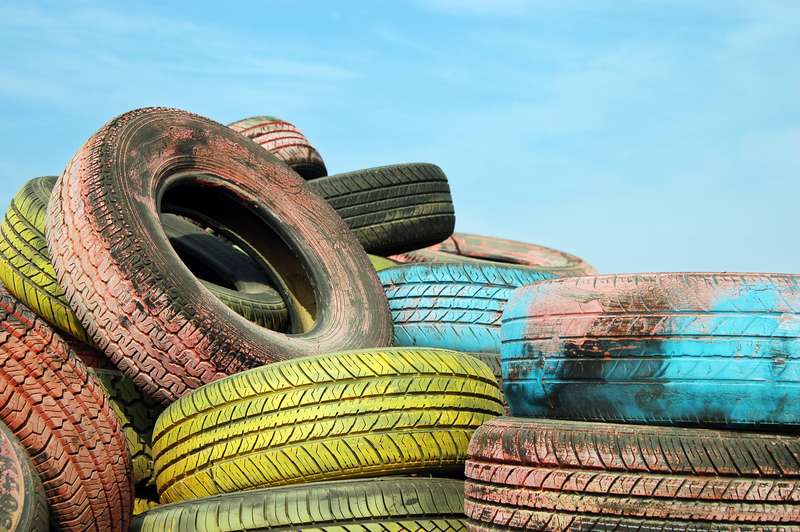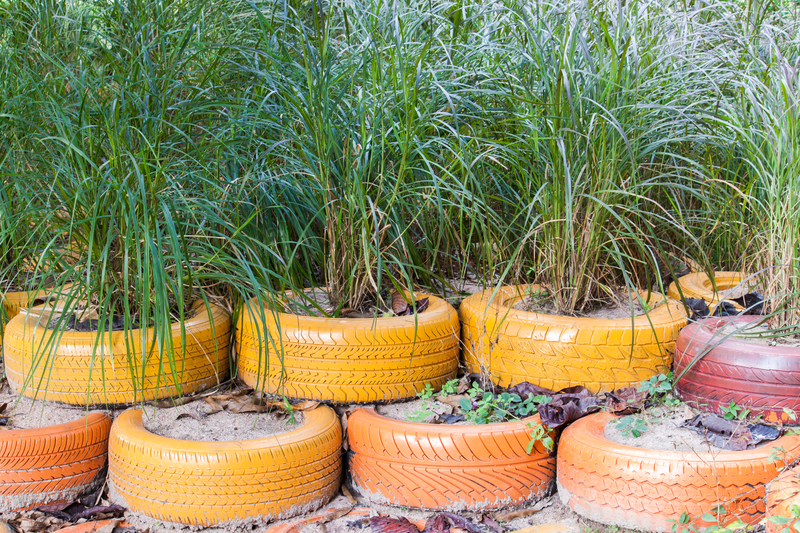Smart Household Waste Reduction Techniques
Posted on 10/10/2025
Are you looking to reduce the amount of waste your household generates? In today's eco-conscious world, more families are seeking smarter ways to manage their trash and contribute positively to the environment. This in-depth guide will walk you through essential smart household waste reduction techniques that are practical, effective, and easy to implement.
Why Is Household Waste Reduction Important?
Every year, millions of tons of household waste end up in our landfills and oceans. This not only takes up valuable space but also pollutes the environment, threatening wildlife and human health. By adopting innovative waste reduction strategies at home, you can:
- Conserve natural resources by minimizing extraction and processing
- Reduce pollution and greenhouse gas emissions
- Save money on purchases and disposal costs
- Promote a cleaner, healthier living environment
Let's dive into creative, actionable, and efficient ways to cut down your home waste output.

1. Conduct a Household Waste Audit
The first step to smarter waste management is understanding what you throw away. A waste audit helps you identify patterns and opportunities for waste reduction.
How To Perform a Waste Audit
- Save your trash for a week, separating recyclables, compostables, and landfill waste.
- Spread it out (using gloves, of course), and categorize items by type: food, packaging, paper, plastic, hazardous, etc.
- Record how much of each type you generate.
- Spot items that could have been reduced, reused, or recycled.
Tip: This insightful process will show your household's biggest waste offenders!
2. Zero Waste Shopping Habits
Minimizing what you bring home is central to all waste reduction strategies. Here's how to shop smarter:
- Bring reusable shopping bags, produce bags, and bulk containers.
- Buy in bulk to avoid excess packaging.
- Choose products with minimal or recyclable packaging.
- Support local farmer's markets to reduce food miles and packaging.
- Avoid single-use plastics (water bottles, straws, cutlery).
Did you know? Over 100 billion plastic bags are used worldwide annually, but one sturdy tote can last years!
3. Mastering the Art of Reusing
Before tossing anything away, ask if it can serve another purpose. Reusing household items extends their life cycle and reduces waste.
Creative Reuse Ideas
- Repurpose glass jars for storage or as containers for homemade gifts.
- Turn old t-shirts into cleaning rags or tote bags.
- Reuse paper and cardboard for crafts or kids' art projects.
- Upcycle furniture and decor with a fresh coat of paint.
Get the whole family involved: Challenge everyone to a weekly creativity contest for the best upcycled creation!
4. Composting: Nature's Waste Disposal System
Food scraps make up 20% or more of the average household's garbage. Smart homes cut this drastically by composting:
Benefits of Composting
- Reduces landfill waste and methane emission
- Creates rich, natural fertilizer for your plants
- Lowers your garbage bill if you pay by volume or weight
Composting Methods For Every Home
- Backyard composting: Great for homes with gardens or yards. Use a bin or simple pile to compost fruit and veggie peels, coffee grounds, eggshells, and yard waste.
- Indoor composting: Use a countertop compost bin or specialized worm bin (vermicomposting).
- Community composting: Many cities offer drop-off sites for food scraps.
Pro tip: Do not compost: meat, dairy, cooked foods, or oily/greasy foods, as they attract pests.
5. Recycling Smarter--Not Harder
Smart recycling starts with knowing what can and can't go into your bin. Follow these household recycling tips:
- Always rinse containers before recycling--leftover food can contaminate entire batches.
- Check local guidelines: some plastics and cartons aren't recyclable everywhere.
- Break down cardboard boxes to save space.
- Keep plastic bags, styrofoam, and electronics out of standard recycling bins; many stores and recycling centers have special collection bins for them.
For reference, the average recycling contamination rate is 25%; let's help lower that stat!
6. Mindful Meal Planning and Food Storage
Food waste is a major issue. Smart meal planning and proper storage can dramatically shrink how much is tossed.
Strategies to Minimize Food Waste
- Plan your week's meals and shop only for what you need.
- Use a "first in, first out" system: older items get used first.
- Store produce properly: Leafy greens in airtight containers, onions and potatoes in a cool dark space.
- Freeze leftovers and excess produce before it spoils.
- Embrace "ugly" fruits/veggies and use wilting ones in soups or smoothies.
7. Waste-Free Cleaning Solutions
Household cleaning often creates chemical and packaging waste. Opt for sustainable, waste-reducing options:
- Refillable cleaning products: Buy concentrates or refills instead of new bottles.
- DIY cleaners: Vinegar, baking soda, and lemon are natural, effective, and low-waste.
- Compostable or reusable cleaning cloths, sponges, and mop pads.
8. Digital and Paper Waste Reduction
Even small changes can make a big impact on household paper waste:
- Switch to digital billing, statements, and subscriptions.
- Unsubscribe from junk mail and catalogs.
- Print only when necessary, and use both sides of the paper.
- Reuse scrap paper for notes and lists.
9. Smart Approaches to Hazardous Waste
Items like old batteries, paint, chemicals, and electronics need special disposal. Handle these the smart way:
- Locate your community's hazardous waste collection center.
- Recycle old electronics at certified e-waste centers.
- Choose non-toxic, biodegradable cleaning and gardening products.
Never flush medicines or pour chemicals down the drain--they harm waterways and wildlife.
10. Encourage Family and Community Involvement
Lasting waste reduction begins with education and teamwork. Get your household and neighbors involved by:
- Hosting zero-waste challenges or educational workshops
- Starting a local tool- or toy-sharing library
- Advocating for improved recycling and composting programs in your community
- Organizing neighborhood cleanups
When everyone participates, smart waste management becomes the norm, not the exception.

Frequently Asked Questions: Smart Waste Strategies at Home
How can I start reducing household waste if my local area doesn't offer extensive recycling?
Focus on reduction and reuse as your first steps. Shop in bulk, avoid disposables, and compost as much as possible. You can also encourage your local government to improve recycling infrastructure and consider connecting with recycling drop-off programs in nearby areas.
Are there smart devices that help with household waste?
Yes! Some high-tech composters, such as countertop food recyclers, can quickly break down scraps, while smart bins help track and sort waste efficiently. Apps can also remind you of waste pickup days, composting tips, and buying patterns to reduce waste.
What is the number one factor in lowering home waste generation?
Mindful purchasing and consumption is key. If you don't bring excess packaging or disposables into your home in the first place, you won't have to discard them. Conscious consumerism is at the heart of all smart household waste management.
Conclusion: Make Smart Household Waste Reduction a Family Goal
Transforming your home into a waste-conscious household doesn't happen overnight. With a commitment to change and the techniques outlined above, you can drastically reduce what you send to the landfill. Not only will you save money and resources, but you'll also set a positive example for your family and community.
Start with a single change today--whether it's starting a compost bin, using reusable shopping bags, or planning your meals more carefully. Then, build on your progress each week. In no time, you'll notice a significant reduction in your household waste and a big boost in your sustainability efforts!
Ready to make your home smarter and greener? Begin with these waste reduction tips and watch your trash can shrink, your savings grow, and your environmental impact shine.
- Audit your waste and set reduction goals.
- Choose reusable over disposable every time.
- Compost, recycle, and educate those around you!
Small steps make big changes--start your waste reduction journey today!

